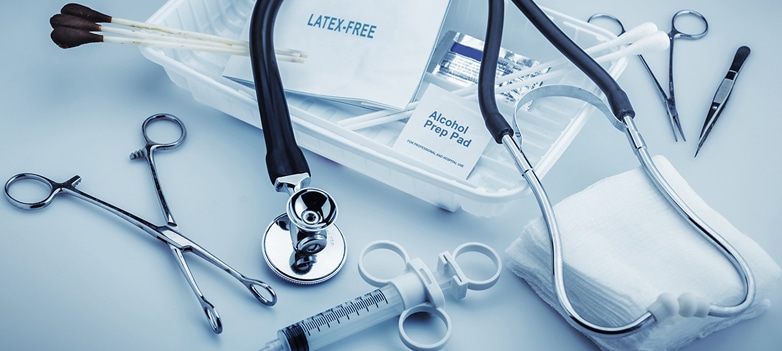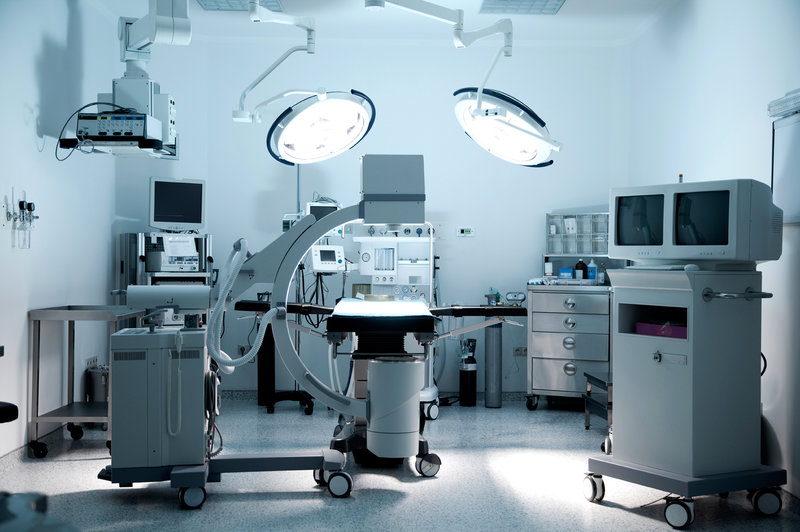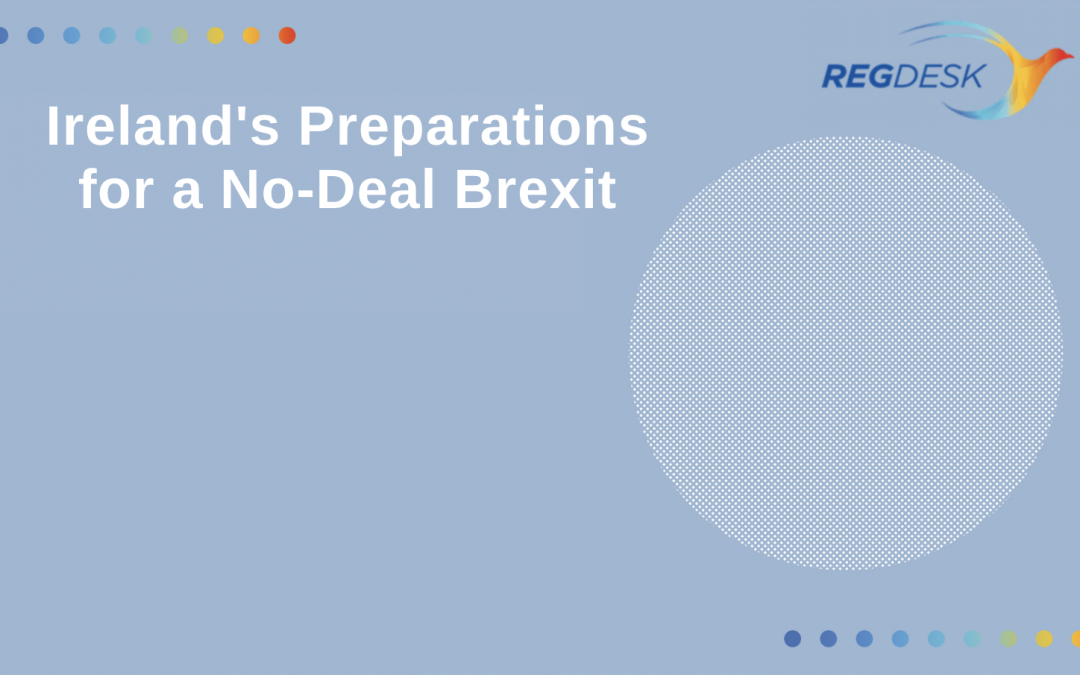The Health Products Regulatory Authority (HPRA) of Ireland has shared details of its efforts to mitigate the risk of disrupting the supply of medical devices caused by a no-deal Brexit. In cooperation with the Department of Health and the Health and Safety Executive (HSE), the HPRA has been engaged in extensive post-Brexit planning to highlight the regulatory changes companies should implement.

No-Deal Brexit’s Impact on Ireland’s Medical Devices
In a no-deal scenario, The United Kingdom would leave the European Union (EU) immediately without discussion or agreement regarding the separation process. The UK’s exit will result in a significant impact on Ireland’s medical supply as the UK’s Medicines and Healthcare products Regulatory Agency (MHRA) is a large contributor to the EU’s medical devices system.
As Ireland is the EU’s second-largest net exporter of medical devices, its supply chain is entangled with the UK. As much as 40 percent of medical devices used in Ireland will not be accessible because authorized bodies in the UK will no longer be recognized by EU regulators after April 12th.
The no-deal Brexit poses many issues regarding medical devices, such as:
- the transfer of certificates from UK notified bodies to an EU notified body
- relocation of UK based European Authorised Representatives within the EU
- the designation of a European Authorised Representative within the EU for UK manufacturers
Cross border healthcare services, however, should not be affected, and the process of obtaining prescriptions and medications for patients will remain the same.
Preparation for No-Deal Brexit
With regard to the supply of medical devices, HPRA emphasis the need for exposed businesses in particular to increase preparedness measures, and highlighted the need for consideration of stocks in the supply chain and ensuring arrangements are prepared to allow for the timely replenishment of such stocks.
Manufacturers, authorized representatives or distributors/suppliers are requested to take the following steps to ensure stock levels are sufficient up to October 31, 2019 and post-Brexit:
- Medical devices on the market that are certified by UK Notified Bodies should have the certificates transition to an EU-27 Notified Body before the withdrawal date.
- Companies with a UK authorized representative must transition to an EU-27 authorized representative before the withdrawal date.
- Documentation should reflect the EU-27 Notified Body and/or EU-27 authorized representative.
- Documentation should be maintained to identify the date of manufacture.
Manufacturers and distributors establishing in Ireland are required to register their organization and device information with the HPRA before the withdrawal date.
HPRA issued similar notices earlier this month, detailing their efforts to mitigate the risk of disruption to the supply of medical devices. Ireland’s Prime Minister, Leo Varadkar was quoted saying, “It is only by Government, business, and citizens working together nationally, and with our EU partners that we can aim to mitigate as far as possible the impacts of a no-deal Brexit, and ensure that we are as prepared as we can be for the changes it will bring.”
According to the HPRA’s chief executive Lorraine Nolan, larger medical device manufacturers have taken measures to–or have already transitioned their UK device certificates to those from EU bodies. However, both smaller and medium-sized manufacturers have noted the difficulty in obtaining such certificates that fall under the necessary EU regulations.
As many small and medium-sized manufacturers have historically relied on UK notified bodies for medical device certification activities, the no-deal Brexit has resulted in a significant number of manufacturers that have yet to transition their UK certificates to an EU member state. The HPRA has been working diligently with other EU authorities to develop an approach to managing UK certificates that have not transitioned by the deadline.

HPRA to Increase Fees and Existing Charges
Additionally, Ireland’s HPRA has proposed fee increases to new and existing charges in light of the new rules regarding medical devices and services and complex changes to the regulatory model brought on by Brexit.
HPRA plans to apply a 3% increase to existing charges that cover human medicine, compliance, organ, tissue, blood, and medical devices–as well as a 20% increase in maintenance fees. Moreover, some existing services may be increased by more than 3%.
New fees include supplemental charges for mutual recognition procedures and for devices that use starting materials that have a transmissible spongiform encephalopathy certificate of suitability that has been submitted by 150%. Their purpose is to align their rates with decentralized outgoing fees required by new products. HPRA justifies the new fees by arguing that the regulatory model, review process, and operating environment has become more complex, which have led to more complex medications, treatments, and service.
“The regulatory model is becoming more complex, there are more complex medicines and the pharmacovigilance legislation has led to an increase in the number of referrals and regulatory action arising from the outcome of these referrals. Public scrutiny and the role of the regulator in relation to medicines such as the HPV vaccine has increased, and compliance activity, particularly outside of Ireland, is also increasing.”
MDR’s Role in Medical Devices
The European Commission officially published the Medical Device Regulations (MDR) on May 5, 2017, replacing the Active Implantable Medical Devices Directive (AIMD) and the Medical Devices Directive (MDD). The MDR effectively defines medical devices and identifies devices that must comply with its requirements and those that will be under separate regulations.
Medical devices are defined by the MDR as any “instrument, apparatus, appliance, software, implant, reagent, material or other article,” intended to be used for medical purposes, such as:
- The diagnosis, monitoring, treatment, prevention, or alleviation of disease, disability or injury
- Providing data via in vitro examination of samples derived from a human body
- The investigation, modification or replacement of an anatomical, physiological or pathological process
- Cleaning, disinfection and sterilization of medical devices
- Control and support of conception
Medical Device Classifications in Ireland
Medical device classifications are determined by the risk associated with the use of the device and its intended purpose. In Ireland, they can be classified–from lowest to highest risk–as Class I, IIa, IIb or III. For products to be considered as medical devices, they must have a medical purpose and be physically used primarily.
- Class I: low risk, non-invasive, do not interact with the body
- Class IIa: medium risk, invasive, limited to natural orifices
- Class IIb: medium risk, invasive, partially or totally implantable, potentially hazardous
- Class III: high risk, connects directly with the Central Circulatory System or contains a medicinal product, support or sustain human life
Similarly, in-vitro diagnostic (IVD) devices are also classified according to the risk associated with the use of the devices. They can be categorized under List B (low risk) and List A (high risk).
For both types of devices–medical and IVD–regulatory requirements rely heavily on the classification of the device. The higher the classification, the greater the regulation and level of assessment required by notified bodies. Manufacturers of the devices are the ones responsible for the classification of their products. However, in the case that manufacturers find it difficult to determine whether a product qualifies as a medical device or if there is uncertainty regarding the classification, a formal classification request may be sought from the HPRA. Typically, the results of a formal classification request take 30 days to become available, and there is also a required fee.

How can RegDesk help?
RegDeskTM platform provides medical device manufacturers, authorized representatives and importers, with the detailed and reliable information on the most relevant regulatory news, events, and changes in in a timely manner. The information provided is necessary to maintain compliance with both national and international regulations set forth by competent authorities.
Sources:
http://www.hpra.ie/homepage/medical-devices/regulatory-information/classification

